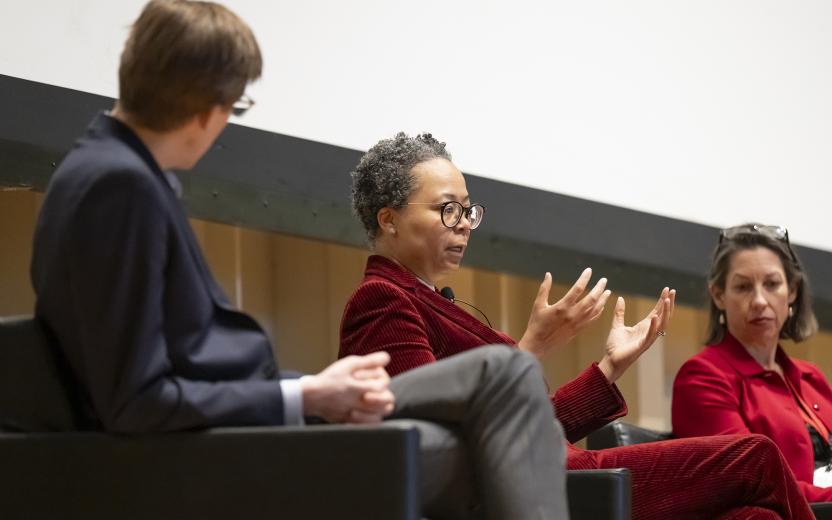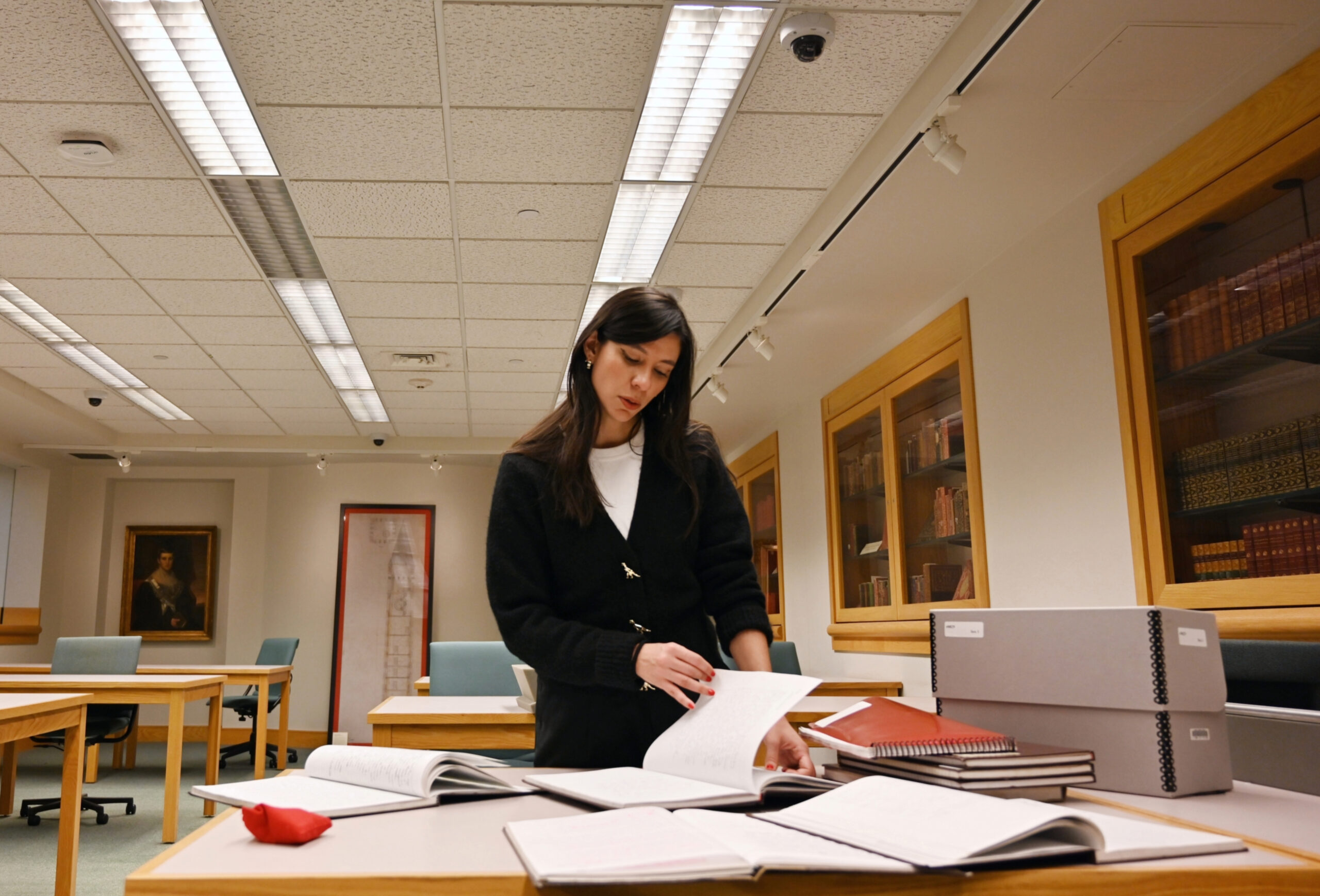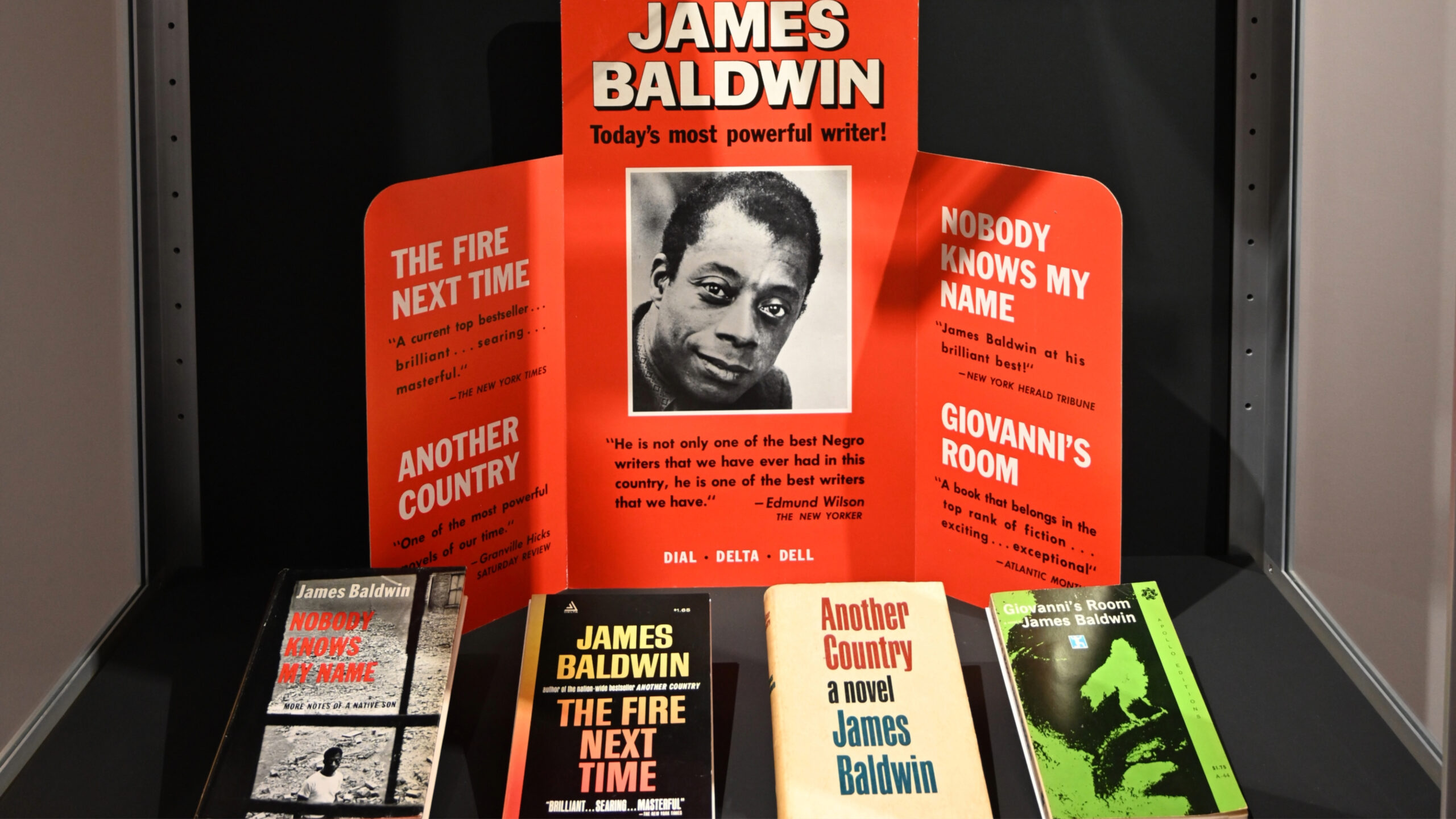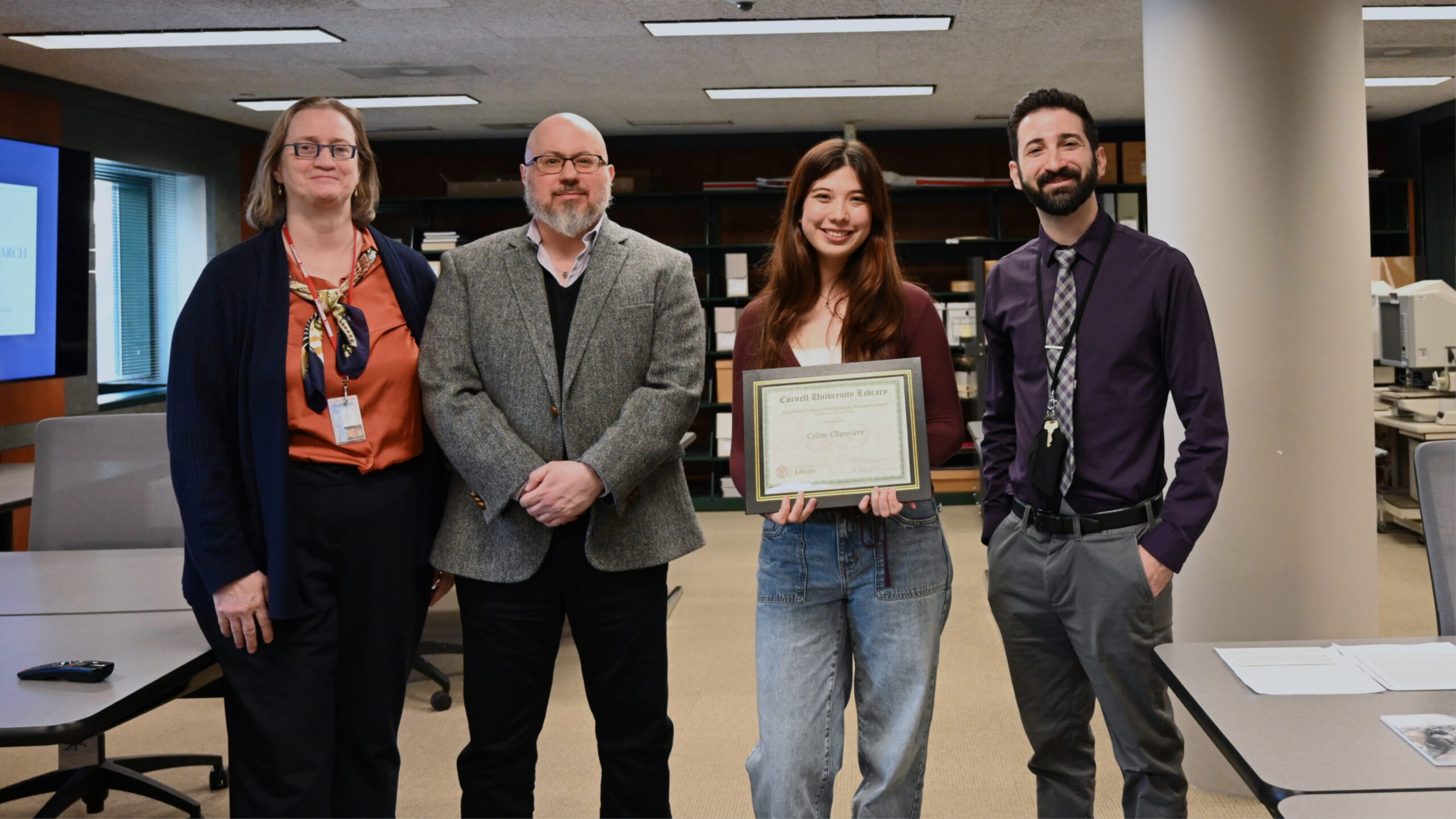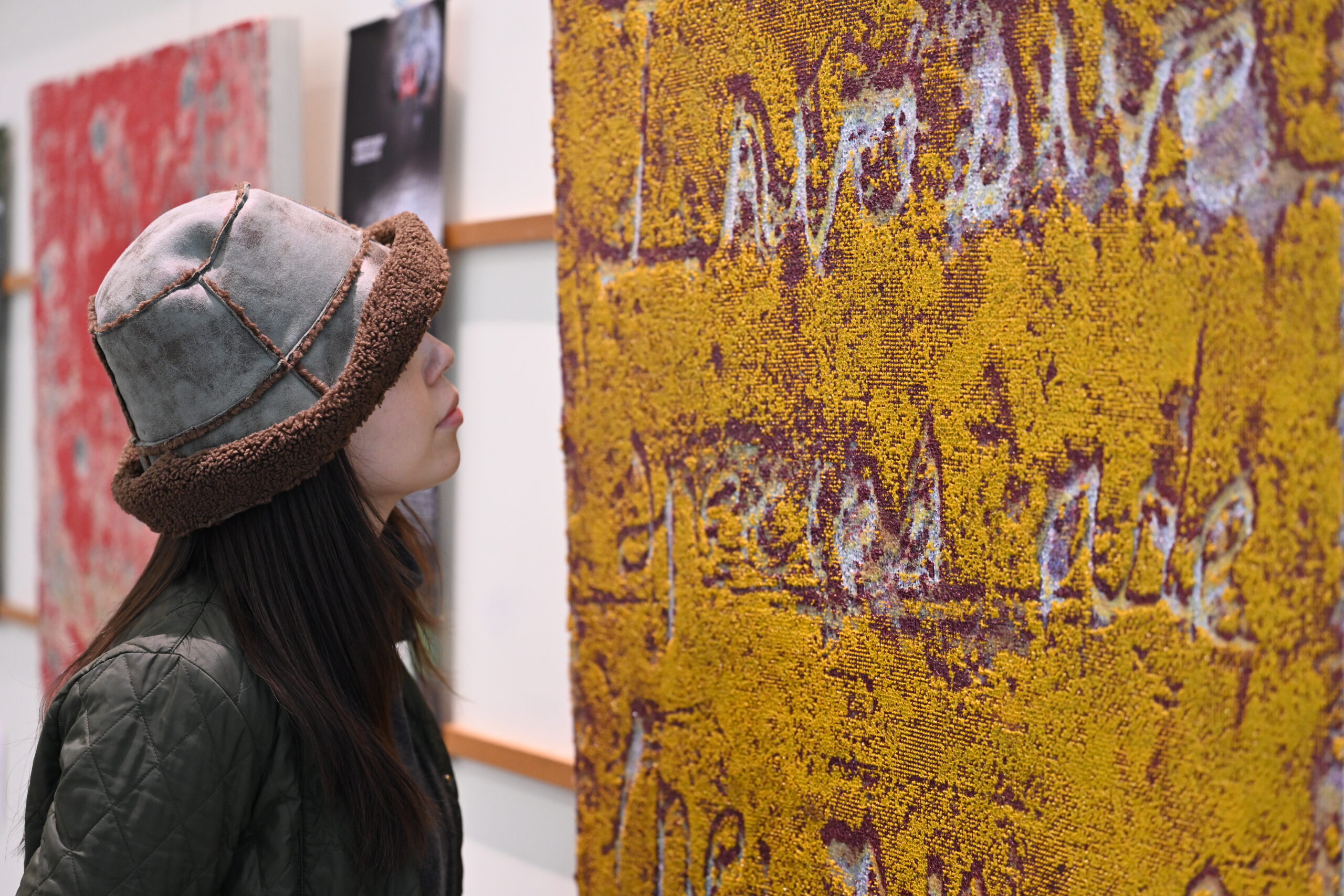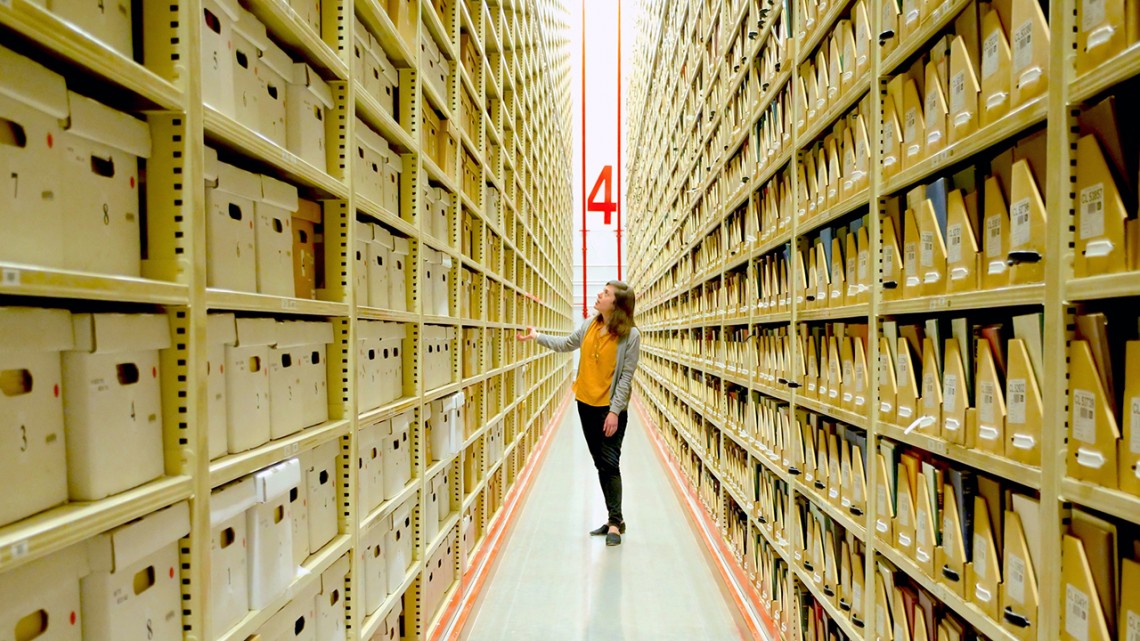
A treasure trove for scholars of philanthropy and social change is now available at Cornell University Library’s Division of Rare and Manuscript Collections (RMC) as the expansive archive of The Atlantic Philanthropies has gone public.
Founded in 1982 by Charles F. “Chuck” Feeney ’56, The Atlantic Philanthropies is Cornell’s most generous benefactor, and it has invested a total of $8 billion to advance health, human rights, education and economic opportunity around the world. The foundation donated its archives to Cornell in 2015 .
The first batch of archival materials to open includes files for grants given by the foundation in Australia, Bermuda, Cuba, Great Britain, Northern Ireland, the Republic of Ireland, South Africa, Vietnam and other areas. U.S. grant files are slated for release within the next few months and will include materials related to the foundation’s support of Cornell, totaling nearly $1 billion – $350 million of which enabled the creation of the Cornell Tech campus in New York City. That gift represented the largest grant given by Atlantic, and the largest single gift received by Cornell to date.
Other materials from The Atlantic Philanthropies’ archives – including office and staff files – will be available to researchers shortly after the foundation closes its doors late this year, in line with Feeney’s philosophy of “giving while living.”
Scholars will be inspired by the different ways the foundation has advanced causes and improved lives across the globe, according to Phoebe Kowalewski, the archivist leading efforts to inventory and organize the foundation’s collections.
“The grants,” Kowalewski said, “have built campuses and hospitals in different countries, supported peace and reconciliation in Northern Ireland, helped modernize Vietnam’s public and primary health systems and aided in forging democracy in South Africa after apartheid.
“Apart from being a tremendous resource on how to achieve positive social change on a large scale,” she said, “this collection is relevant to anyone interested in studying the history of these regions.”
Kowalewski believes these newly public archives will yield insights into the inner workings of a transformative organization and its visionary founder, who chose to keep his philanthropy anonymous for decades. Items of interest include documentation about pivotal moments in the foundation’s life, particularly its decision to go public in 1997 and to become a limited-life foundation in 2002, Kowalewski said.
Researchers can view the online finding aid for the Atlantic Philanthropies archives. Requests for viewing the archival materials for research at RMC can be made by emailing either RMC or Kowalewski.
This article also appeared in the Cornell Chronicle.
